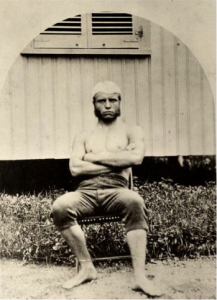“Sparring in the White House: Theodore Roosevelt, Race, and Boxing” is an article written on a sports blog called Sport in American History. The article is written by Roberto José Andrade Franco and Andrew McGregor. The authors discuss the growth of the sport of boxing in America and the changing public views of it during its rise to popularity. Authors include President Teddy Roosevelt’s experience in the sport, providing information on his participation and his eventual advocacy against the sport. Much of the sports criticism arose when Jack Johnson became the first black heavyweight champion. After Jack Johnson defeated Jim Jefferies, Roosevelt stated, “The last contest provoked a very unfortunate display of race antagonism. I sincerely trust that public sentiment will be so aroused, and will make itself felt so effectively, as to guarantee that this is the last prize-fight to take place in the United States.” Jefferies was called “Great White Hopes”, the only white fighter considered to be able to contend with Johnson at the time.
The authors state, “In the early parts of the 20th century, boxing—and other “manly” sports, like college football—helped calm the fears that for white men, “oversentimentality, oversoftness, … washiness and mushiness” were grave dangers.” This quote directly covers a major theme of the article. Boxing was used to make men, especially white Americans, feel masculine. Similar to the Duran Machismo in the Isthmian Machismo reading. Race played a huge factor in boxing, as more immigrants migrated into the United States during the early 20th century. The authors argue that “At a time of increased foreign encounters, both at home and abroad, this softness and hesitancy prevented the country from fulfilling its self-appointed role atop the racial hierarchy that included the burden of civilizing the barbarous.” White men began to feel like boxing was a way to civilize the “barbarous”. Roosevelt knew of these issues with race and worked to prevent the idea’s growth. However, it is argued that the over civilization of America is what brought the “oversoftness” and “oversentimentality”. Roosevelt and the country worked to establish a balance “between being over-civilized while still maintaining enough civility to distinguish itself from the savage nations being guided towards progress.”
